By Molly Patrick
Feb 24, 2015,
Do you remember last week when I told you that I’m not like most vegans?
Well, it’s a damn good thing because earlier this week I was asked if I minded my veggies being in the same fridge as a bunch of pork that was being dried out uncovered for a roast pork dish that would be prepared later in the week.
I told my host that of course I did not mind and went straight to my computer – I knew exactly what I wanted to write to you about this week.
I’m currently in Kuala Lumpur (KL), the capital of Malaysia, celebrating Chinese New Year with Luanne and her family.
KL used to be a slightly obscure city in South East Asia, but is now unfortunately notorious for their aviation disasters (yes, flying here made me nervous).
Apart from its crap luck with airplanes, Malaysia is most known for its food.
People here don’t eat, they inhale and repeat. Eating is not a function for survival, it’s a national sport.
Let’s take a looksy at some examples:
- Every single plan that’s made revolves around eating.
- People know different areas of the city based solely on what dishes an area specializes in.
- The city is laced with food stalls that serve hot food 24 hours a day, 365 days a year.
- When someone has 6 people coming over for dinner they cook for 12, just in case each person brings a friend and doesn’t give warning (totally acceptable, btw).
- Every conversation has something to do with food, particularly regarding who and where makes the best (fill in the blank).
- Before breakfast is over, lunch, tea time and dinner will have been planned out.
- People will drive to another state or fly to the opposite side of the country just to have lunch at their favorite restaurant. And no one thinks this is strange.
- When you take a road trip, you can expect at least one restaurant and three fruit stalls at any given rest area.
- During Chinese New Year there are lunches and / or dinners planned for all 15 days of the new year celebration. And it’s not like you go over to someone’s house and they’ve prepared a noodle dish and a salad (which would be perfectly awesome in my book). They’ve prepared a feast of at least 10 different dishes. And the best part? If you’re not married, they have to give you money. It’s called Ang-pow or “red packet“ and since Luanne and I aren’t married, they have to pay up. (Even if we were married I’m not sure if the red packets would come to a halt. That’s a slightly uncomfortable topic, and who has time for uncomfortable chatter when there’s so much food to discuss?).
Are you licking up what I’m dishing out?
It’s mad and wonderful and strange and delicious, and I’ve gained at least 5 pounds and received over $300 in ang-pow money since I’ve been here.
So here’s the thing with being a healthy plant-based eater in South East Asia.
It’s hard.
Especially if you’re used to eating lots of raw organic veggies, superfoods, green juices, leafy greens, and all of the other rock star food that keep us healthy and energized.
It’s possible to eat healthy in South East Asia, but you have to put in some major effort.
- Sugar is everywhere, additives aren’t looked down upon, MSG could easily be the national mascot, leafy greens don’t exist and organic food is either sparse or ridiculously expensive.
- People are sure that milk is a super healthy food, and that animal protein is a must.
- White rice is thought to be way healthier than brown rice because it has less starch.
- You will not find a proper health food store in all of KL (3 million people), and “juice bars” sweeten their fruit smoothies with sugar.
Now! I tell you all of this NOT to complain. I absolutely love coming here and I adore Southeast Asia.
I tell you this because I wanted to paint you a picture, and the title of my picture is called:
If you think it’s hard to eat healthy in the U.S, you would think it was a fucking breeze after you traveled to this part of the world.
Luanne’s friends and family know that I’m vegan, but their first response is always surprise and confusion because, how does an American go without meat or cheese?
After the initial shock wears off, this is how being vegan translates to them:
- They know I don’t eat pork.
- They think I can have dishes with chicken in it as long as I don’t actually eat the chicken.
- They’re pretty sure I can eat eggs and fish, and milk and butter are grey areas.
- They know that oil is totally vegan – no confusion with this one, and they’re usually relieved because oil is in pretty much everything (I don’t even breach the oil topic).
And when I’m here, this is more or less what it looks like for me:
- I’m super firm with not eating pork.
- I won’t eat a dish if I know there’s chicken in it, but I’m sure I’ve innocently consumed my fair share of chicken broth.
- I try to avoid eggs and fish as much as possible, but sometimes they get cooked in with rice or noodles or other dishes, and so I eat around them as much as possible without looking like an ass.
- Milk and butter are sneaky little bastards that don’t always make an obvious appearance, so I do my best to go without.
- Oil isn’t used sparingly here, so I roll with it.
I’m not saying it’s impossible to eat healthy here; I’m saying that you really have to be committed to it, and people’s perception of healthy is a shit ton different than my perception.
And if I were super kick ass, I would only eat fruits and the local veggies and be set. But I can’t travel all the way across the world to be a fruitarian.
Not happening.
There’s good reason why this culture is so obsessed with food.
Malaysia has an incredibly rich culinary history because of the diverse population that have called this place home for over a hundred years. There are three distinct ethnic groups that make up Malaysia, and all of them are known for their cuisine by their own right.
Indians from southern India, Chinese from Southern China and the local Malay people, who are technically Polynesian.
Southern Indian food, Southern Chinese food and Polynesian food are heavily reliant on spices and fresh ingredients.
This makes sense since Malaysia was smack dab in the middle of the Ocean Spice Trade Route during the age of exploration. So when these populations migrated here, spices were readily available and they could continue on with their culinary traditions.
And just like people here got together from different ethnic groups and made super cute mixed babies, the cuisines also became intermingled and an explosion of spices, tastes, textures and depth of flavor was born.
It’s only in the last 20-30 years that unhealthy ingredients have made their way here and saturated kitchens everywhere. And that’s a shame, because the base of Malaysian cuisine isn’t unhealthy – it’s rich in healthy spices and full of fresh veggies and unadulterated ingredients.
So you see, it’s hard not to fall hard for the food here because it flirts with you until you become totally smitten, and before you know it, you’re eating the spiciest curry you’ve ever had on your life, sweat is pouring from your brow, all of your sinuses have been cleared and it’s 8:00 – IN THE MORNING.
Plus, there’s a little something called Roti Canai that Malaysia is known for and if I could marry it, I would. Roti Canai (pronounced chen-ai) is a thin tortilla-like bread that’s super flaky and it comes with veggie curry that you pour over it. It’s the food that comes closest to giving me an orgasm upon entering my mouth.
At the end of the day, traveling is all about diving head first into different cultures, and this culture happens to be fucking obsessed with food. So I follow suit.
I just make sure to drink warm water each morning, make a smoothie for breakfast (usually cabbage, bok choy, dragon fruit and water), drink 70 oz. of water each day, order a big ass plate of veggies when I get the opportunity to and move my ass on the daily.
The next time you’re in an unhealthy food rut, remember, there are a ton of small food tweaks that can make a huge difference. And if you’re in a food rut right now and not feeling as healthy as you’d like, I want you to do three things:
- Be grateful for farmer’s markets and healthy grocery stores in your city or town.
- Make the recipe below. Because COCONUT BACON.
- Or sign up for our whole food plant based meal plans and just follow along. All you have to do is shop and batch cook whole food plant based food. We’ve taken care of the hard part of what to make.
But before you do anything, check out my one week (so far) in Malaysia in photos and notice the food theme.
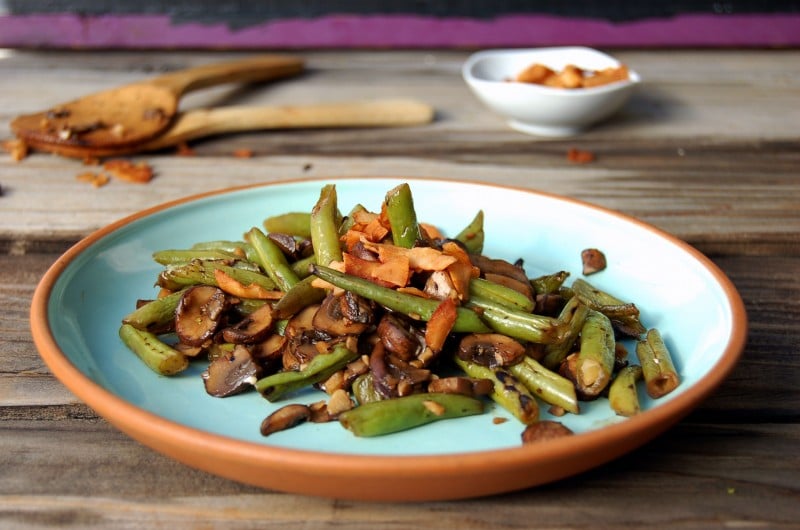
Ingredients
- 3 cups green beans 340g, ends plucked and cut in half
- 3 cups mushrooms 275g, sliced
- 8 garlic cloves minced
- 2 teaspoons soy sauce 10ml
- 1 tablespoon balsamic vinegar 15ml
- Salt and white pepper to taste
- Coconut Bacon to top killer recipe from last week
Instructions
- Heat a skillet or a wok over medium heat for a minute or two until it’s hot and then add the green beans and cook for 4 minutes.
- Add the mushrooms, garlic and soy sauce and cook for 5 minutes.
- Add the balsamic vinegar and cook for an additional 3 minutes, stirring occasionally so that the ingredients are well combined and the vinegar coats all of the beans.
- Add salt and white pepper to taste and top with Coconut Bacon before serving.

May you have a happy week, filled with patience, gratitude and leafy greens (eat extra for me, k?)
Oh, I also wanted to mention that my new nickname is “longshank” on account of my height (which is only impressive when I’m in Asia)
5 Comments
Leave a Comment
You may also enjoy...
Love the food that loves you back
Get instant access to thousands of plant based recipes and meal plans, no credit card or perfection required.

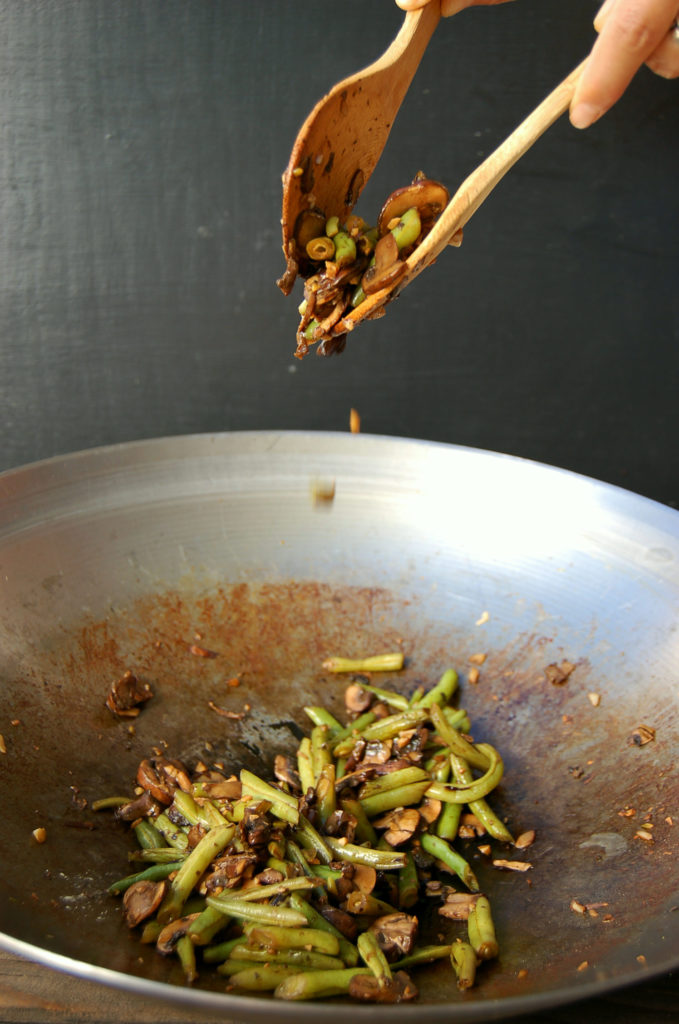
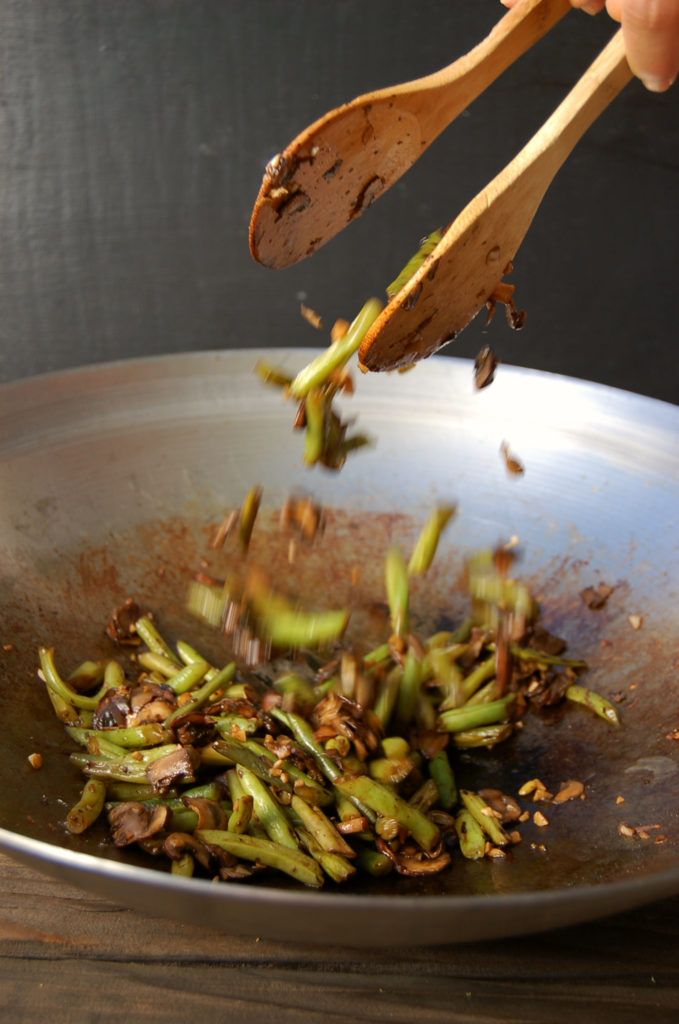

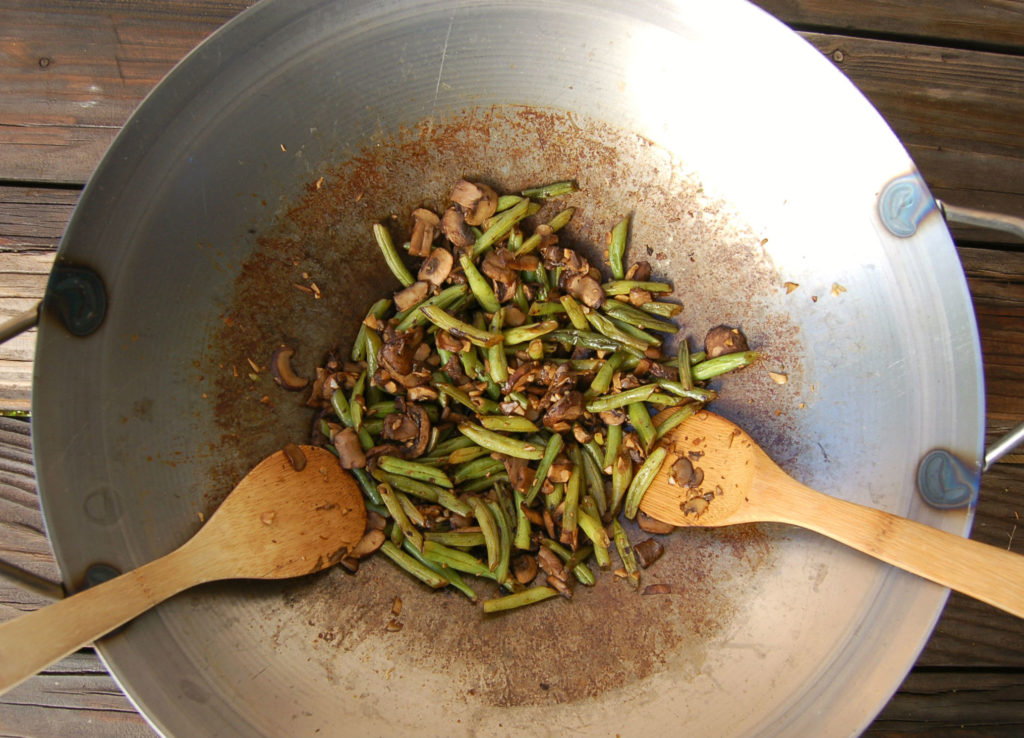



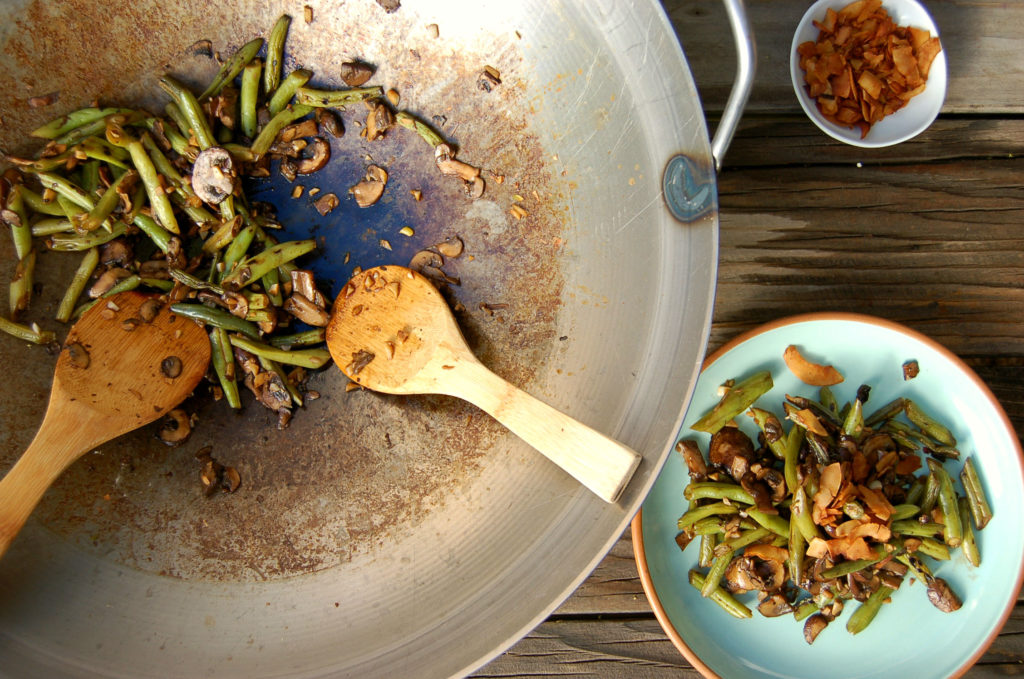
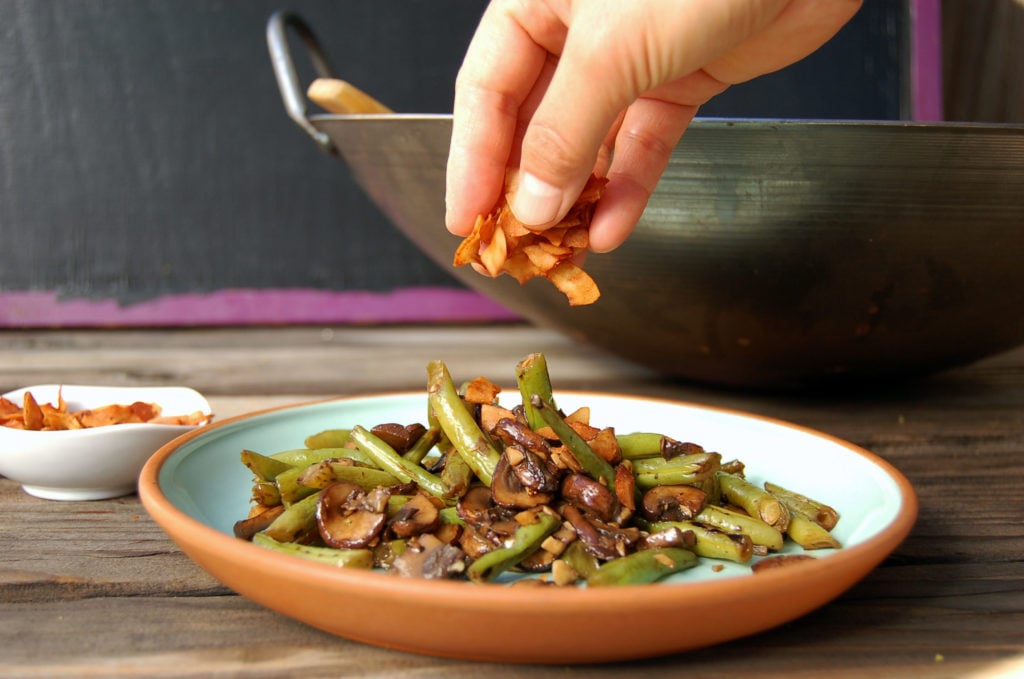



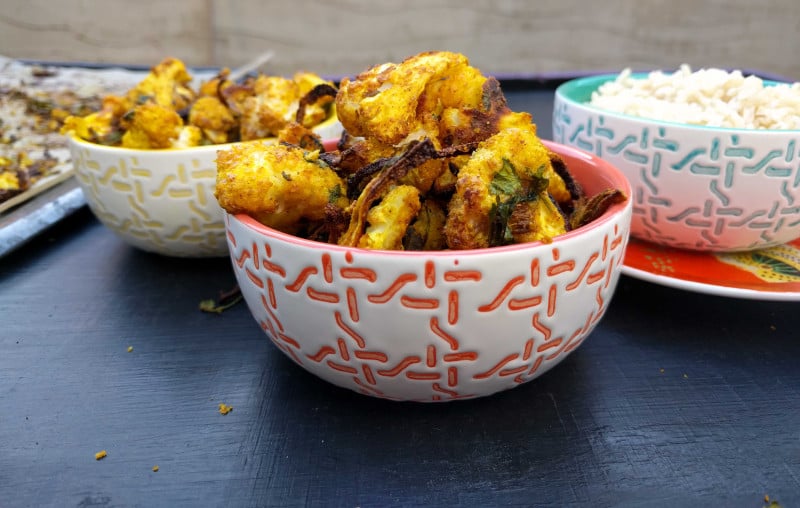
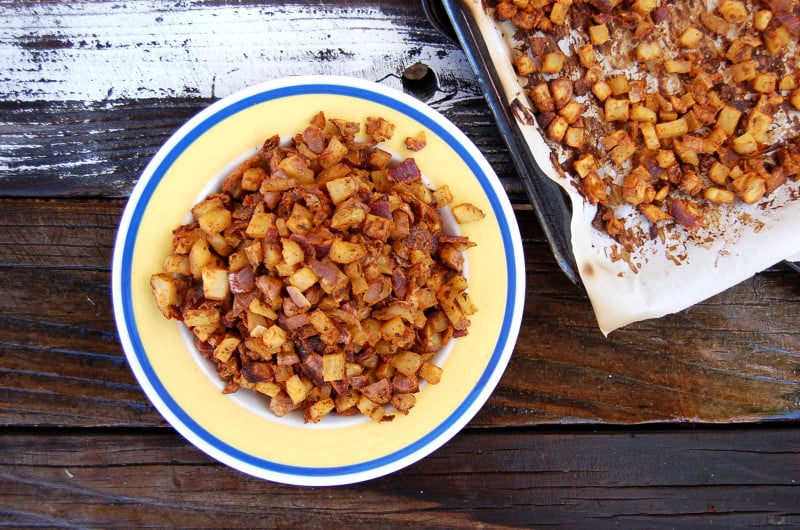

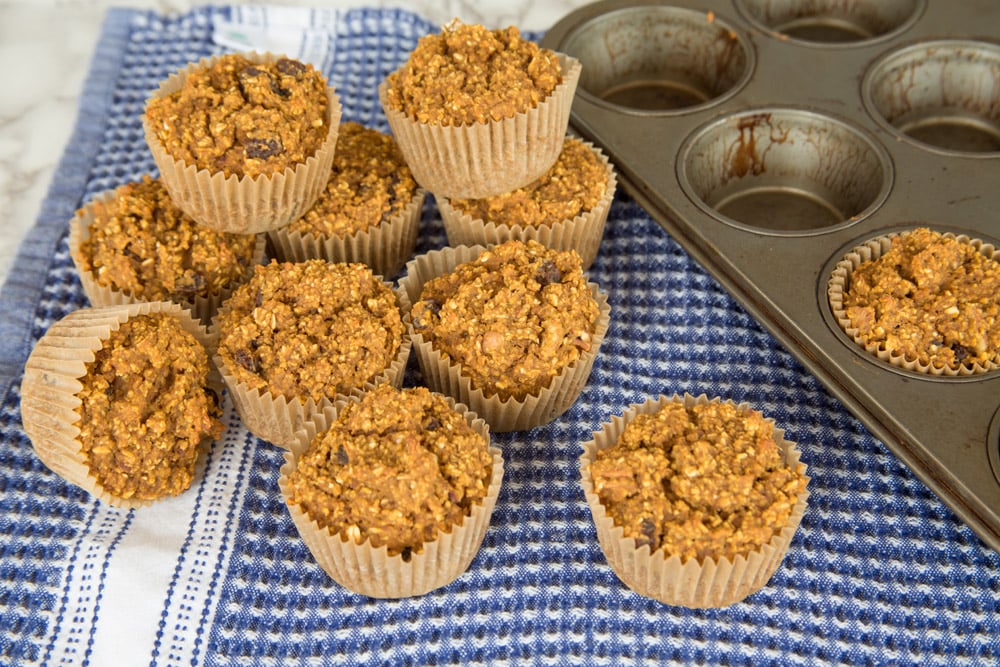
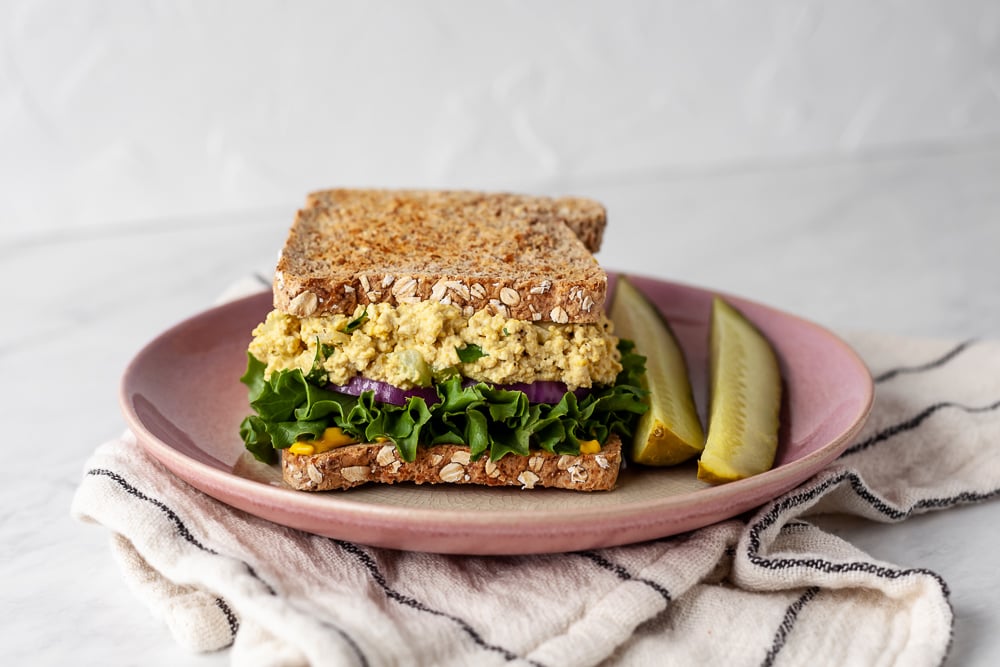
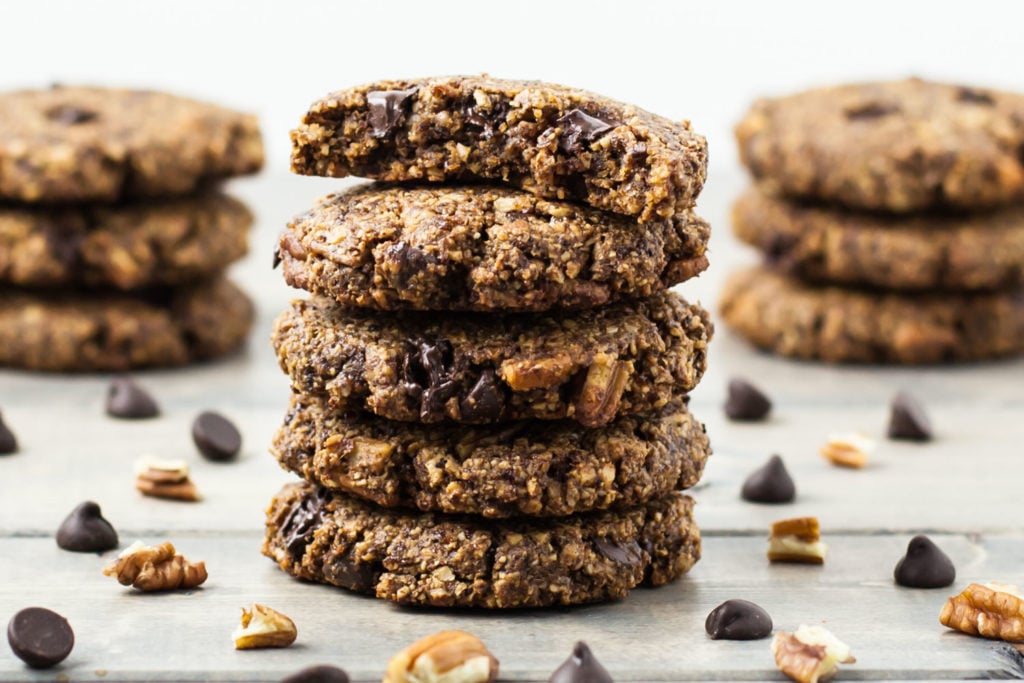




thanks, very informative.
Man, I read this at just the right time.
I’ve been stalking the FB group, and eating wfpb for about 2 weeks now. Last night I finally signed up for the plan, and I’m feeling really committed to making this change.
However, I leave for a trip to Indonesia in 5 days, and I’ve been really stressing over the food situation. Malaysia and Indonesia share a lot of cultural similarities, so I imagine I will encounter a lot of the same.
This post reminded me to not sweat it so hard. I’ll do my best to be healthy while there, but I’m not going to kill myself over it while on an amazing trip.
Thanks for the reminder that it’s ok to go with the flow a little, and that sanity is part of overall health. 😉
Hey Chelsea,
Yes – Traditional Indonesian and Malaysian food do have some crossovers especially in things like tempeh, tofu and greens. Travel opens your eyes to a lot of different things and most of all food. If you’re not going to be completely militant about the food then it’s going to be wayyyy less harder overall. When Molly and I go to that part of the world, which is pretty much every year, she’s super relaxed about things like oil, eggs etc. As long as there’s no meat, she’s cool.
In Malaysia, I suggest you try Roti Canai (pronounced CHA-NAI) — I have not met a single person who don’t like it. Molly wants to marry it and it’s her favorite. It’s not even vegan. Not even close 🙂
Here you go. Take a look 🙂
https://www.instagram.com/p/zw-_9-L9ZT/?taken-by=cleanfooddirtygirl
Way cool! Soome very valid points! I appreciate you penning this article and the redt of the site is very good.
This is one the best article i have ever seen in my life you are inspiration for youth keep continue these type of articles thank you.